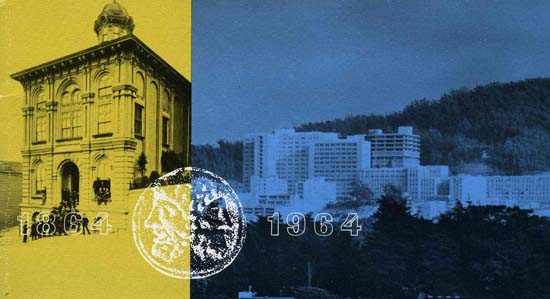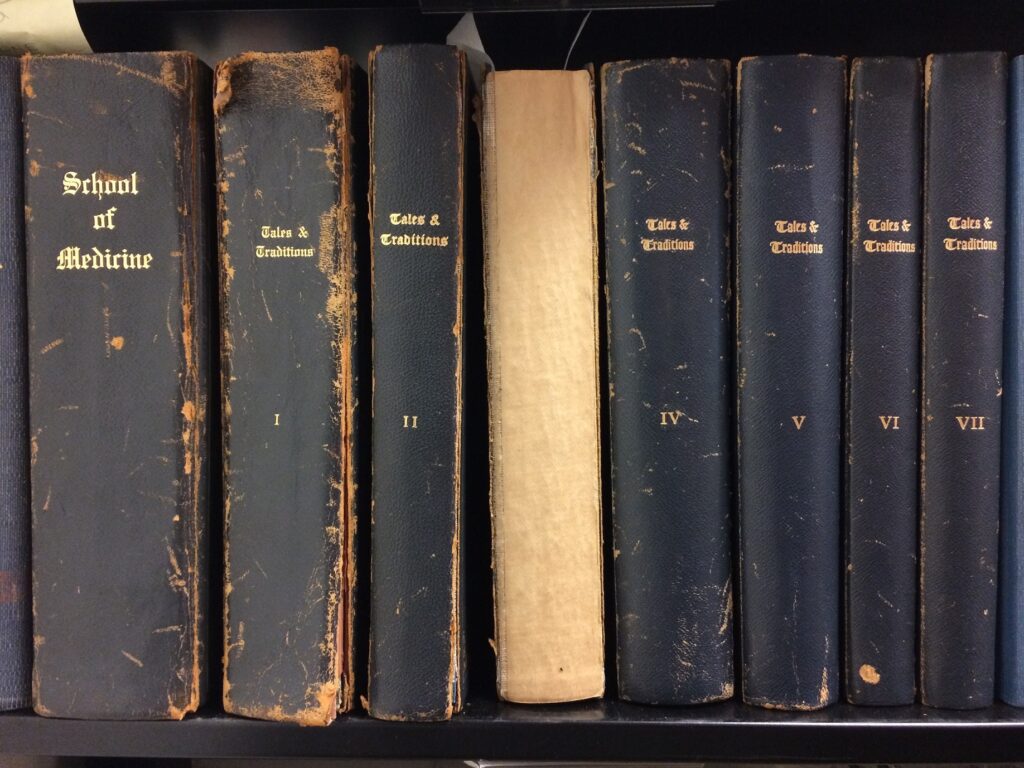Today we would like to officially inaugurate the UCSF Archives and Special Collections audiovisual collection on the Internet Archive.
UCSF has been participating in the California Audiovisual Preservation Program (CAVPP) since its inception in 2010. This innovative program that received funding from the California State Library, the National Endowment for the Humanities (NEH) and the Institute of Museum and Library Services (IMLS) partners with diverse archives, museums and libraries from around the state to provide “digitization and access services for historic California audiovisual recordings.” The goal of the project is to save the rapidly deteriorating California audiovisual heritage: the majority of the cultural institutions in the state have hundreds of recordings in obsolete formats and poor physical condition.
The program selects the recordings based on the following criteria:
• statewide and/or local historical significance – (ideally) featuring widely known names and events
• risk of loss due to physical condition and format obsolescence
• never published commercially– must be primary source material
• intellectual property in the public domain, held by the owning library, or secured from the rights holder, when possible
CAVPP pays for digitization of materials according to best practices and standards, copies of digital files, management of metadata, and provides public access via the California Light and Sound online collection on the Internet Archive.

1964 School of Medicine centennial program
The UCSF collection includes 20 recordings with 11 more currently being digitized. Please take some time to browse these films and audio recordings documenting the development and growth of UCSF. In the next few months we will be showcasing individual items and today we would like to highlight a tape made at the centennial celebration of the School of Medicine on November 20, 1964:
[iframe src=”https://archive.org/embed/cum_000012″ width=”500″ height=”30″ frameborder=”0″ webkitallowfullscreen=”true” mozallowfullscreen=”true” allowfullscreen]
This tape contains almost 4 hours of recordings including addresses and presentations by William O. Reinhardt, Dean, School of Medicine; John B. de C. M. Saunders, Chancellor; Herbert Evans; H. Glenn Bell; William Kerr; Chauncey D. Leake; Peter Forsham; J. Englebert Dunphy; Alexander R. Margulis; Ernest W. Page; Harvey M. Patt; Seymor M. Farber; Henry S. Mass; Samuel Sherman; Alexander Simon; Lloyd H. Smith. To view the centennial program that included photographs by Ansel Adams please click here.
Here is a short excerpt from William O. Reinhardt, M.D. welcome introduction:
“…What are the functions of a school of medicine? The three basic essentials must be teaching, research and community service. The neglect of any one of these spells potential failure of its role. Indeed, the more that these three phases can be melded together, the greater the accomplishment of the institution will be.
Looking back with pride we see new potentials for the future. Therefore, the Centennial Committee has planned a program in which distinguished members of the faculty will survey the past and attempt to project the necessary directions of the future.
But for its greatest usefulness a school of medicine must offer more than narrow disciplines. It must turn our leaders in the community, thoughtful individuals well versed in many fields beyond the confines of the profession itself. Therefore, the celebration of the Centennial closes with a reconsideration of the role of the humanities in the education and profession of the physician.”


